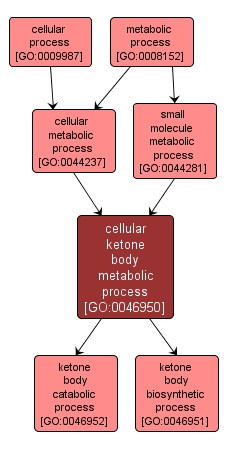| Desc: |
The chemical reactions and pathways involving ketone bodies, any one of the three substances: acetoacetate, D-3-hydroxybutyrate (beta-hydroxybutyrate) or acetone, as carried out by individual cells. Although 3-hydroxybutyrate is not a ketone, it is classed as a ketone body because it exists in an equilibrium with acetoacetate. Ketone bodies may accumulate in excessive amounts in the body in starvation, diabetes mellitus or in other defects of carbohydrate metabolism. |














